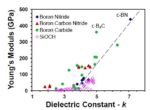At the recent ISSCC conference, Mozhgan Mansuri from Intel gave an enlightening (extended) short course presentation on all thing related to clocking, for both wireline and wireless interface design. [1] The presentation was extremely thorough, ranging from a review of basic clocking principles to unique circuit design … Read More
Tag: intel
TSMC ISSCC 2021 Keynote Discussion
Now that semiconductor conferences are virtual there are better speakers since they can prerecord and we have the extra time to do a better job of coverage. Even when conferences go live again I think they will also be virtual (hybrid) so our in depth coverage will continue.
ISSCC is one of the conferences we covered live since it’s… Read More
Expert Advice for the New Intel CEO
Intel is a semiconductor legend. Founded on July 18, 1968, the name Intel is short for Integrated Electronics. After leading Silicon Valley, the United Sates, and the world into the era of semiconductors through technical excellence, Intel has hit some challenging times. There has been quite a bit of CEO drama that we will look … Read More
Intel Node Names
There is a lot of interest right now in how Intel compares to the leading foundries and what the future may hold.
Several years ago, I published several extremely popular articles converting processes from various companies to “Equivalent Nodes” (EN). Nodes were at one time based on actual physical features of processes but had… Read More
Do You Care About What You’re Measuring? Part 2: Cloud Data Centers
When I think about servers and data centers, I think about multiple-core/high-power CPUs, Intel’s domination over the years and GPUs coming on strong in recent years. I think about very fast digital interfaces, such as PCI Express connections and the latest DDR memory interface. Precision analog isn’t something that first comes… Read More
New Intel CEO Commits to Remaining an IDM
-Intel good results had a little extra help to be great
-New CEO commits to remaining an IDM versus fabless
-Claims of strong progress on 7NM fuel optimism inside
-Outsourcing to TSMC will not go away but will increase
A good quarter but with some silicon enhancements from ICAP
Intel reported Revenues of $20B and EPS of $1.52, which… Read More
CEO Interview: Arun Iyengar of Untether AI
I had a chance to catch up with Arun Iyengar, CEO of Untether AI. Untether AI recently unveiled its tsunAImi accelerator cards powered by the company’s runAI devices. Using at-memory computation, Untether AI breaks through the barriers of traditional von Neumann architectures, offering industry-leading compute density … Read More
ISS 2021 – Scotten W. Jones – Logic Leadership in the PPAC era
I was asked to give a talk at the 2021 ISS conference and the following is a write up of the talk.
The title of the talk is “Logic Leadership in the PPAC era”.
The talk is broken up into three main sections:
- Background information explaining PPAC and Standard Cells.
- A node-by-node comparisons of companies running leading edge logic
The Latest in Dielectrics for Advanced Process Nodes
Of the three types of materials used in microelectronics – i.e., semiconductors, metals, and dielectrics – the first two often get the most attention. Yet, there is a pressing need for a rich variety of dielectric materials in device fabrication and interconnect isolation to satisfy the performance, power, and reliability … Read More
PLDA is at the Leading Edge with Advances in Both PCIe 5.0 and CXL
There are significant advances in communication protocols happening all around us. The Peripheral Component Interconnect Express (PCIe) Gen 5 standard is delivering the needed device-to-device performance to support artificial intelligence and machine learning applications as well as cloud-based workloads. The rapidly… Read More











